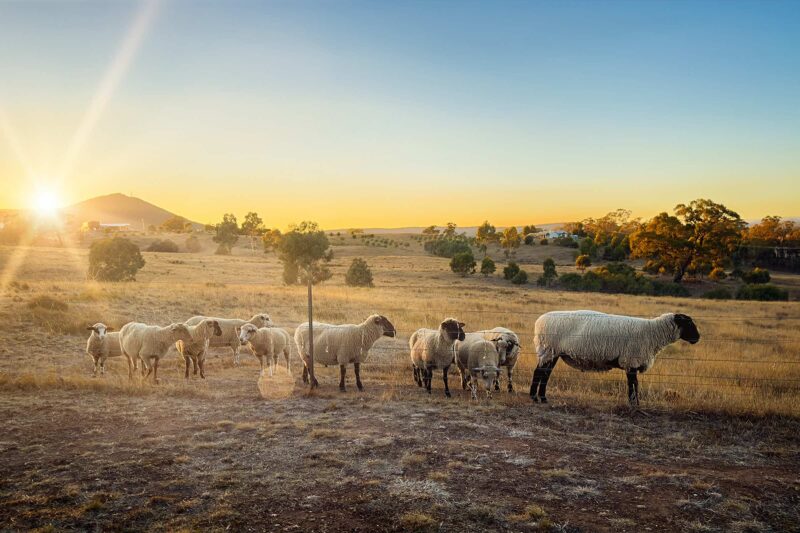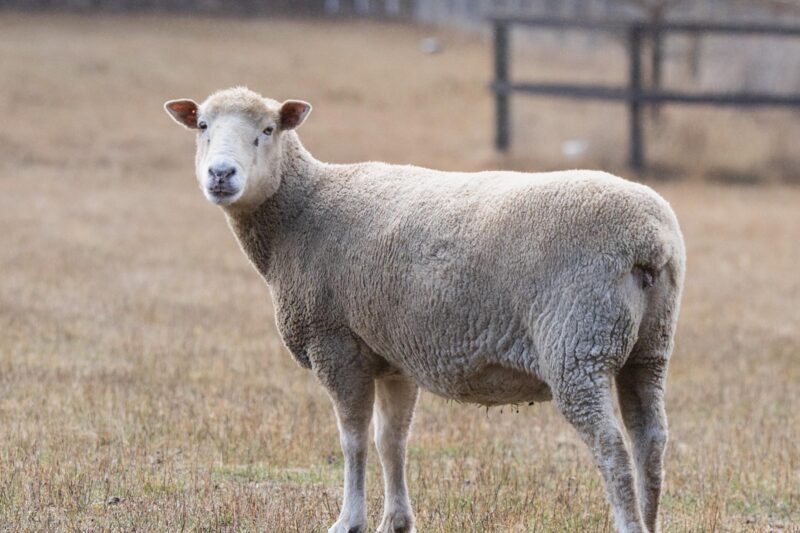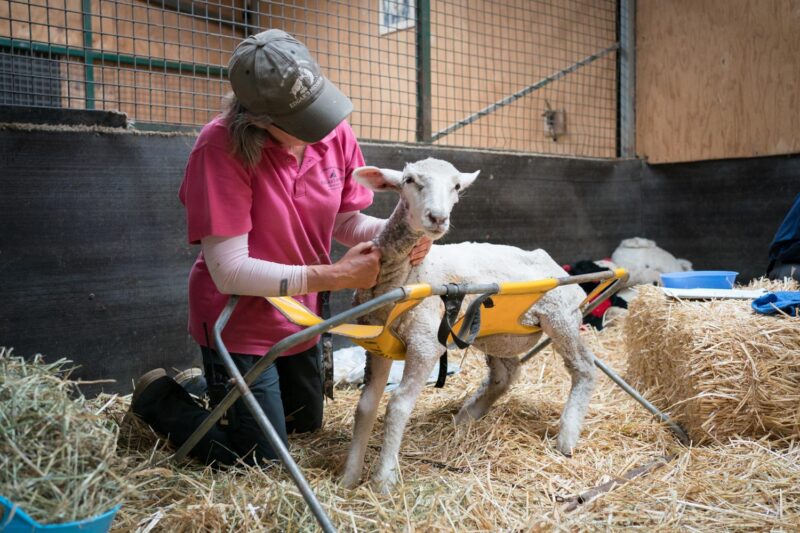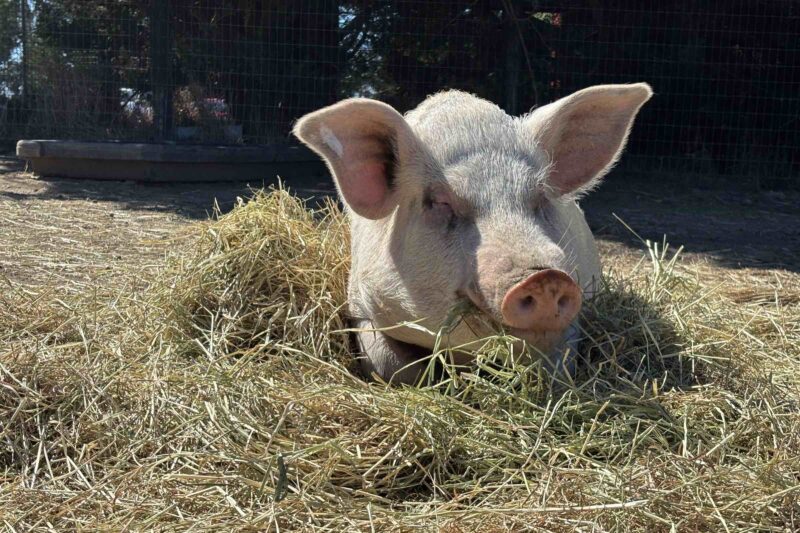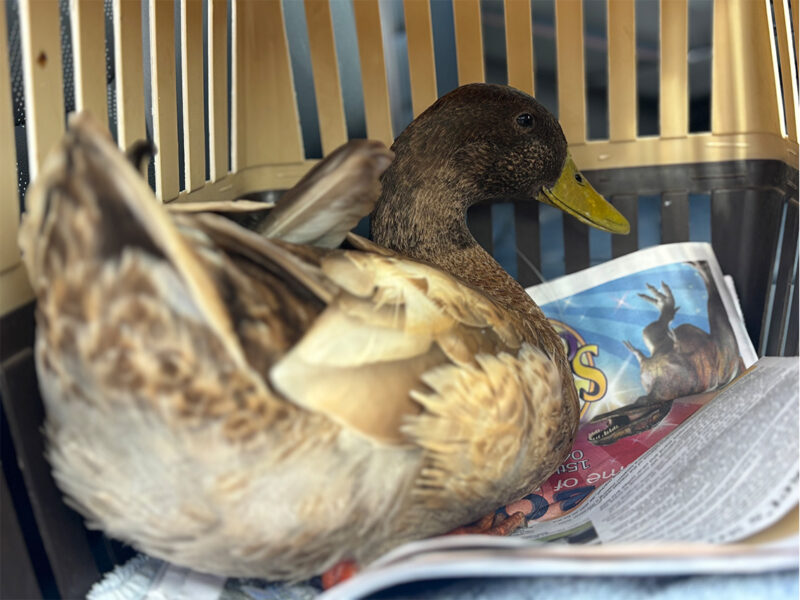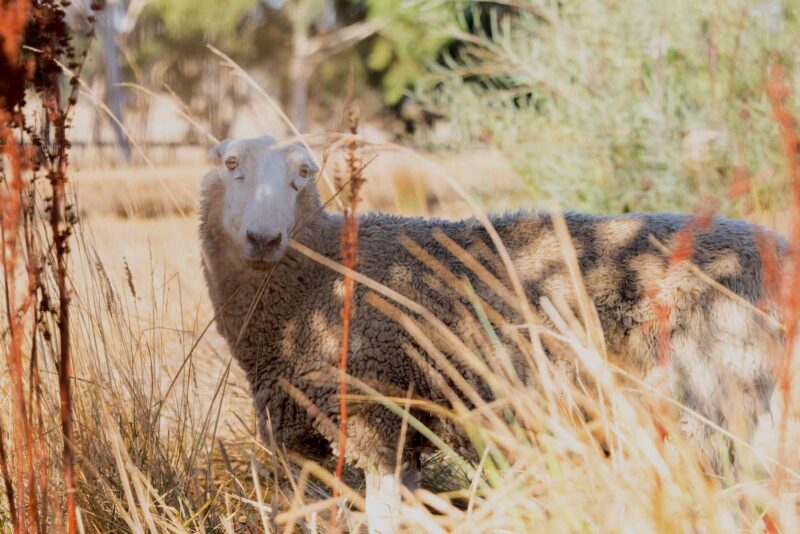
The word “understand” is a verb, and according to my grade five English teacher that means it is a “doing” word. It is best described as “to perceive the intended meaning of (words, a language, or a speaker)”, to “interpret or view (something) in a particular way”.
To have, at the very least, some understanding of the world around us is fundamental to our being. Understanding gives us something solid on which we can lean; a means of acceptance and guidance in a life; and a way to navigate through the river full of possibilities, turbulence, beauty, serenity, indifference, birth and death the world has to offer.
The first time I saw Muffy and her baby lamb Duffy, I understood three things. The first was that the pitiful state into which both of them had been cast did not bode well for them; the second was the incredible bond between the two; and the third was that what I chose to do next would determine their future. With my second understanding firmly in my heart, I chose to do my darnedest to save them, although I knew my ability to do so would be significantly impacted by my understanding of the first.
Muffy, with a body score of barely 1, had put every ounce of her being into her baby, whom she adored. Fiercely protective, it almost broke our hearts as she defiantly stamped her foot, lowered her head and threatened to ram us when we removed her baby from view as we set about cleaning his faeces-ridden and emaciated and bony little body. That she had no hope against we humans, a predator in her eyes, should we have chosen to harm her, did nothing to diminish her resolve to protect her baby. Placing the towel on which we had dried little Duffy in front of Muffy in preparedness of returning him to her, Muffy went into a frenzy when she took in the scents of her lamb. This simple act confirmed our understanding of her devotion—a mother’s love, something we saw each time we witnessed the two of them together, be that Muffy standing over Duffy whilst he slept; the two lying side by side, drinking in the warmth and kindness that had befallen them; or the way she never took her eyes off him when we came near.
With blood tests revealing Muffy was in the final stages of liver failure and that palliative care was the absolute best we could offer in her final days (however many they might be) made our understanding of the situation even harder to endure. That the two would be denied the opportunity to together grow old, grazing the rolling pastures of Edgar’s Mission, saw us work feverishly so that Muffy could hold on long enough for little Duffy to rally, grow stronger and realise a world without his mum was possible.
Every day we placed them in the paddock with our orphan lambs in the hope Duffy would become a part of their little group. But he wanted only his mum, preferring her company, grazing by her side as she guided him about the paddock, never a “baa” away from her. When Muffy was strong enough and the weather kind enough, mother and son sheltered down at night in the lamb stall in the paddock with all the lambs. Then Muffy began to ail, and we understood the end was near. But Duffy did not, choosing to rest by his mother’s side when the simple task of grazing became too much for her as she retreated inside the shelter. Missing such vital grazing opportunities was not in the best interests of one so vulnerable, and we were torn. We understood the gravity of the situation, but he did not.
ver the ensuing days, Muffy and her beloved lamb were never far from our thoughts. Always heading over to check on them, Duffy was to soon show some understanding as he began to hang out more with the other lambs, yet returning to his dear mum every now and then as if to say, “Come on, mum”, in doing so forsaking his own nourishment as he curled in next to her, offering both company and comfort as they sat together for hours. And now it was he who was torn, with more and more time being spent with his new friends.
We understood on that fateful day when we opened the stall and saw Muffy with a vacant look in her eye that had never been there before, that the time had come when our interventions could do no more, except one final act of mercy. And we truly believe that on some level Muffy and Duffy did too.
Right then and there, if we had one wish, it would be this, that all those statements about sheep being dull-witted, stupid and bad mothers were true. But they are not—and that we understand.
Watching out the window now, I see Duffy keeping up with his new lamby pals: his little purple jacket reminding us of his vulnerability in a world that is not always kind, and his daily weight gain and confidence reminding us that sometimes it is. We understand that not everyone sees sheep and lambs as we do, for there was a time when we did not. But we take comfort in our understanding that things change, they always do, and with our kindness that can be for the better—just ask a little lamb named Duffy.
